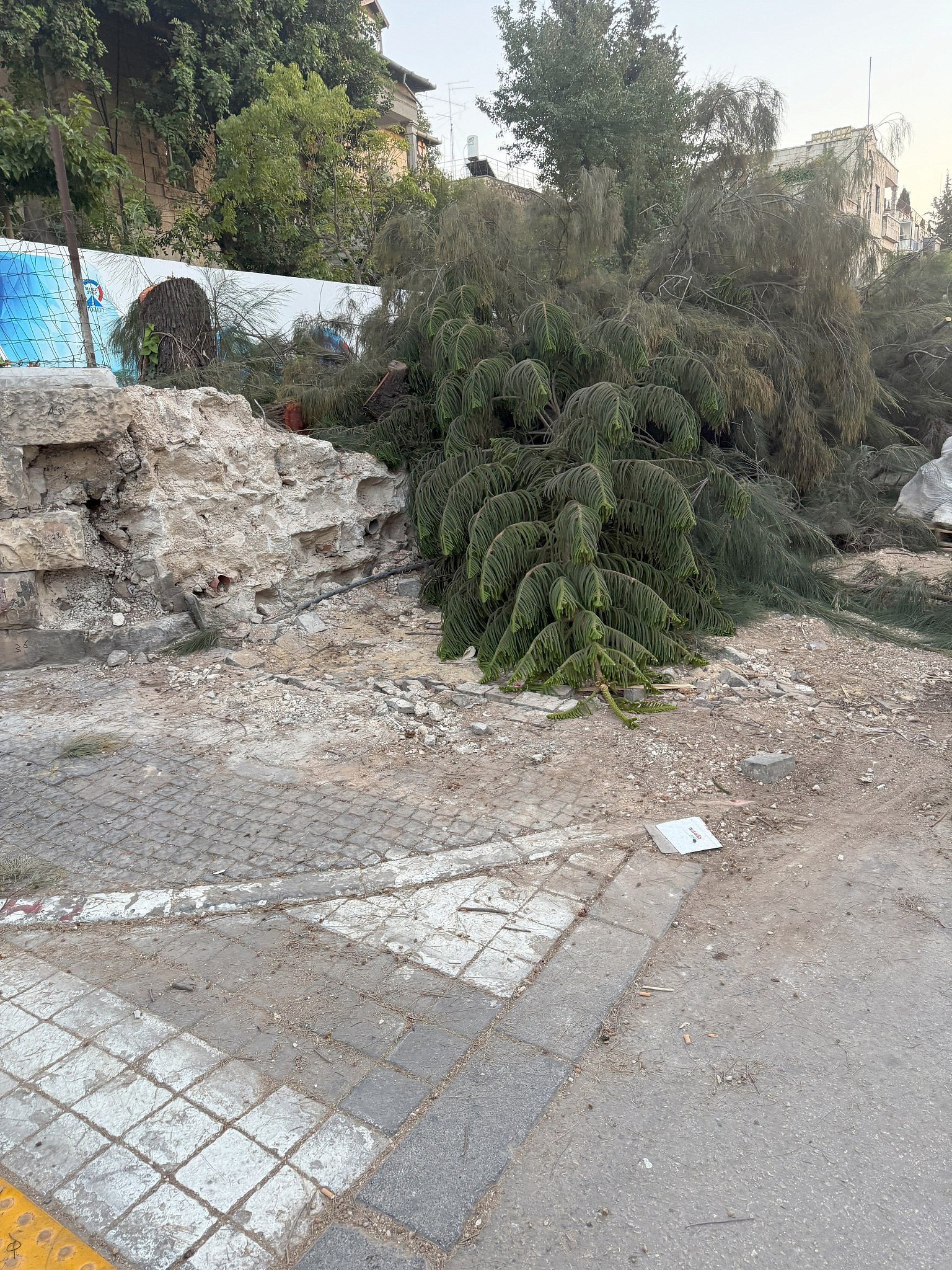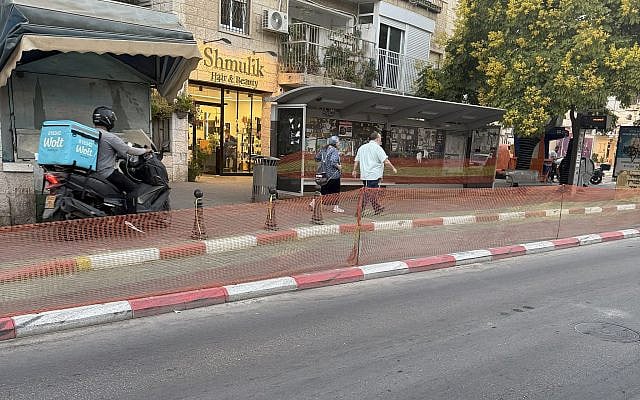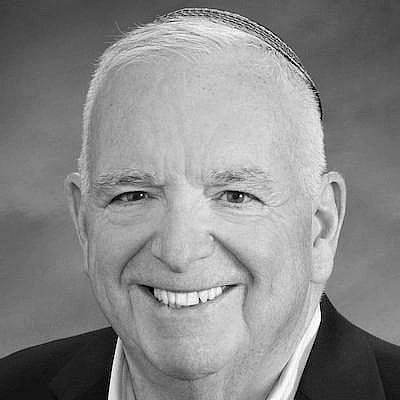Jerusalem’s light rail project has brought upheaval, not improvement, to one of the city’s most beloved streets
Jerusalem’s Emek Refaim has been torn apart by the light rail project: trees cut down, sidewalks unsafe, and daily life in chaos. I live on Emek Refaim, one of the city’s most historic and beloved streets. Right now, it looks less like a bustling boulevard and more like a construction zone. The light rail project has arrived, and with it has come a wave of disruption that feels less like progress and more like destruction.

In front of the Garabedian house the light rail project has erased a century of growth along Jerusalem’s most beloved boulevard. Stephen M. Flatow
The city has chopped down trees and planters in front of the Garabedian house that gave shade and beauty to the neighborhood. Traffic, once difficult but manageable, has become chaotic, with rerouted flows confusing drivers and frustrating residents. Pedestrians — families with strollers, the elderly, schoolchildren — now face new dangers. With the roadway narrowed and sidewalks obstructed, cyclists and even motorcyclists have taken to the sidewalks, weaving around people who have nowhere else to walk.

With sidewalks blocked, cyclists and motorcyclists now weave among pedestrians — safety forgotten. Stephen M. Flatow
And where is the police presence? Absent. Rules of the road are being ignored, and safety is left to chance.
Let me be clear: I am not a Luddite. I am not opposed to progress or modern infrastructure. Jerusalem deserves efficient public transportation. But there’s a right way and a wrong way to implement it. What we’re experiencing on Emek Refaim is the wrong way. The project has turned daily life into an obstacle course. It feels like planners and contractors have forgotten that this is not just a road—it is a neighborhood, a community, a living street.
When the dust settles and the tracks are laid, perhaps we will benefit from the light rail (I hope to live long enough to see it.) But in the meantime, it’s fair to ask: must progress come at the cost of dignity, safety, and quality of life?
Stephen M. Flatow is president of the Religious Zionists of America- Mizrachi (not affiliated with any Israeli or American political party) and the father of Alisa Flatow who was murdered by Iranian sponsored Palestinian terrorists in April 1995. He is the author of “A Father’s Story: My Fight For Justice Against Iranian Terror” and the proud grandparent of 16 and great-grandparent of Avigayil Ora, the Duchess, and Esther Pesya, the Countess.
